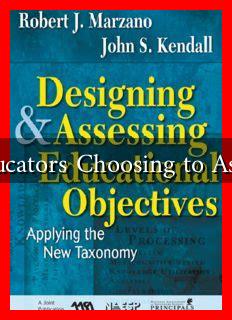-
Table of Contents
Why Are More Educators Choosing to Assess by Objectives?
In recent years, the educational landscape has seen a significant shift towards objective-based assessments. This trend is not merely a passing fad; it reflects a deeper understanding of effective teaching and learning practices. Educators are increasingly recognizing the benefits of aligning assessments with specific learning objectives, leading to improved student outcomes and a more structured approach to education.
The Shift Towards Objective-Based Assessment
Objective-based assessment refers to evaluating students based on clearly defined learning goals. This method contrasts with traditional assessment techniques, which often rely on subjective measures such as essays or open-ended questions. The growing preference for objective assessments can be attributed to several factors:
- Clarity and Focus: Objective assessments provide clear expectations for students, allowing them to understand what is required to succeed.
- Measurable Outcomes: Educators can easily measure student performance against specific objectives, making it easier to identify areas for improvement.
- Standardization: Objective assessments can be standardized across different classrooms and schools, ensuring fairness and consistency in evaluation.
- Data-Driven Decisions: With quantifiable results, educators can make informed decisions about curriculum adjustments and instructional strategies.
Benefits of Assessing by Objectives
Adopting an objective-based assessment approach offers numerous advantages for both educators and students. Here are some key benefits:
- Enhanced Student Engagement: When students know what they are expected to learn, they are more likely to engage with the material. This clarity fosters a sense of ownership over their learning.
- Improved Learning Outcomes: Research indicates that students perform better when assessments are aligned with learning objectives. A study published in the Journal of Educational Psychology found that students who received objective-based assessments scored significantly higher than those who did not.
- Immediate Feedback: Objective assessments often allow for quicker grading and feedback, enabling students to understand their mistakes and learn from them promptly.
- Facilitates Differentiation: Educators can tailor assessments to meet the diverse needs of their students, ensuring that all learners can demonstrate their understanding of the material.
Case Studies and Real-World Examples
Several educational institutions have successfully implemented objective-based assessments, showcasing their effectiveness:
- University of California, Berkeley: The university adopted a learning outcomes framework that emphasizes objective assessments. As a result, they reported a 15% increase in student retention rates over three years.
- High School District in Texas: A Texas school district implemented objective-based assessments across its curriculum. The district saw a 20% increase in standardized test scores within two years, demonstrating the positive impact of this approach.
Challenges and Considerations
While the benefits of objective-based assessments are clear, there are challenges that educators must navigate:
- Overemphasis on Testing: There is a risk that focusing too heavily on objective assessments may lead to a narrow curriculum that prioritizes test preparation over holistic learning.
- Resource Intensive: Developing high-quality objective assessments can be time-consuming and may require additional training for educators.
- Equity Concerns: Not all students may perform well on standardized assessments, raising questions about equity and fairness in evaluation.
Conclusion
The trend towards objective-based assessments in education is driven by a desire for clarity, measurable outcomes, and improved student engagement. As more educators recognize the benefits of aligning assessments with specific learning objectives, we can expect to see continued growth in this approach. While challenges remain, the positive impact on student learning outcomes and the ability to make data-driven decisions make objective assessments a compelling choice for educators. By embracing this method, educators can create a more effective and equitable learning environment for all students.


